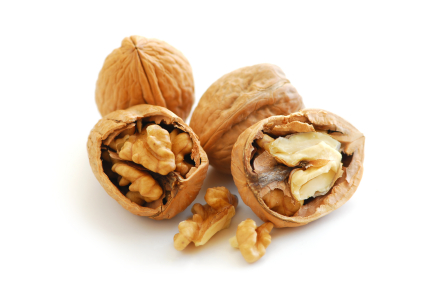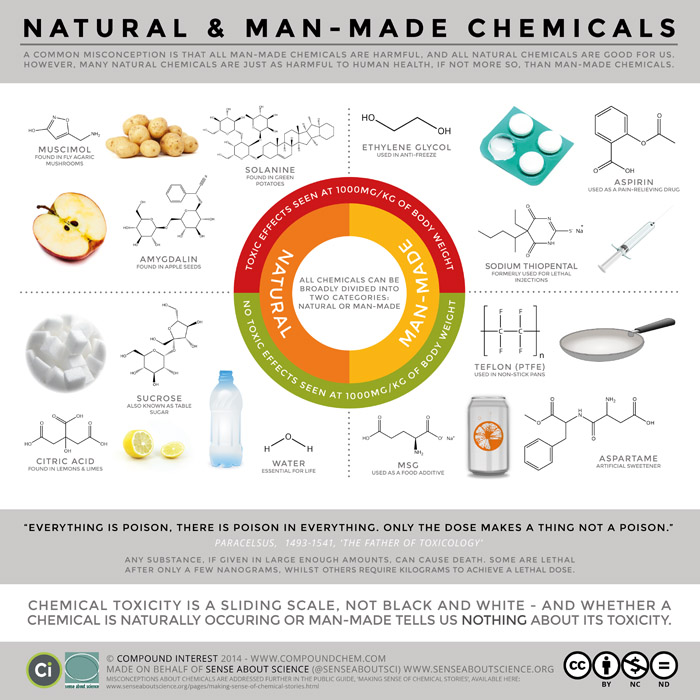
Natural Chemicals vs. Manufactured Chemicals
The terms "chemical" and "poison" have become interchangeable in the popular consciousness and as a result the whole subject of chemistry has become tainted with unpleasant connotations. But what if "natural" chemicals were just as dangerous, perhaps even more so?
In May of 2014 the campaign group Sense About Science joined the discussion with the publication of a guide, Making Sense of Chemical Stories.
Sense about Science is a respected charitable organization that "equips people to make sense of scientific and medical claims in public discussion," facilitating discussions between concerned and interested groups and relevant experts.
The aim of its guide is to bridge the disconnect between the lifestyle view (and popular definition) of chemicals and the realities of how chemistry is used to sustain the modern world. The guide does this by tackling common misconceptions about chemistry.
 Chemicals are not bad - it's the dosage
Chemicals are not bad - it's the dosage
"A common misconception is that all man-made chemicals are harmful, and all natural chemicals are good for us. However, many natural chemicals are just as harmful to human health, if not more so." Photograph: Compound Interest/Sense About Science
We bring you this discussion to highlight the fact that flame retardants can only be made with chemicals, whether naturally occurring or manufactured salts. You don't have a choice about whether or not to use flame retardant, because it saves lives (and it's the law). The choice you can make is for the flame retardant or fire resistance service that uses chemicals that are not toxic to you and the environment.